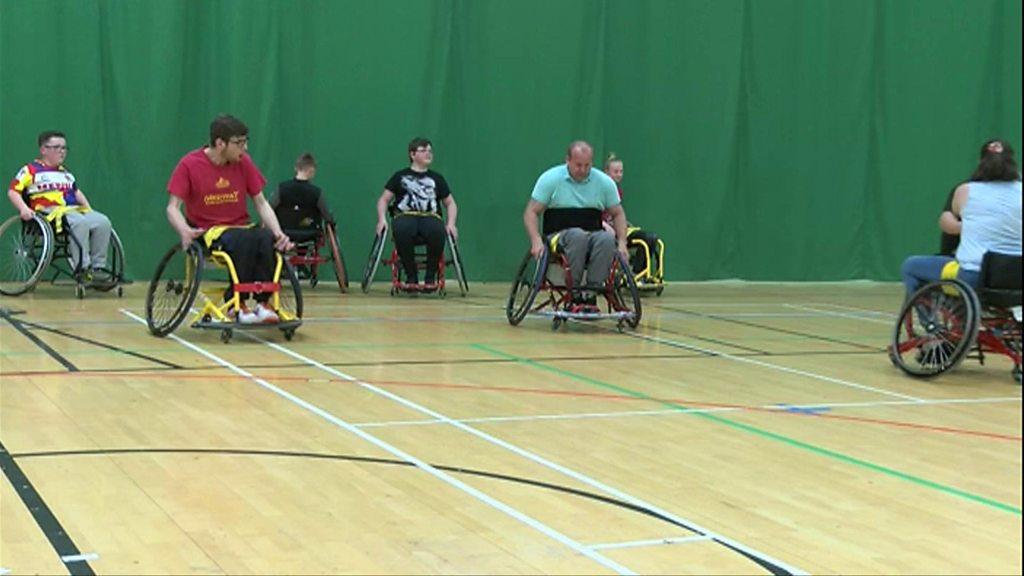Cerebral palsy SDR surgery call for Wales
- Published
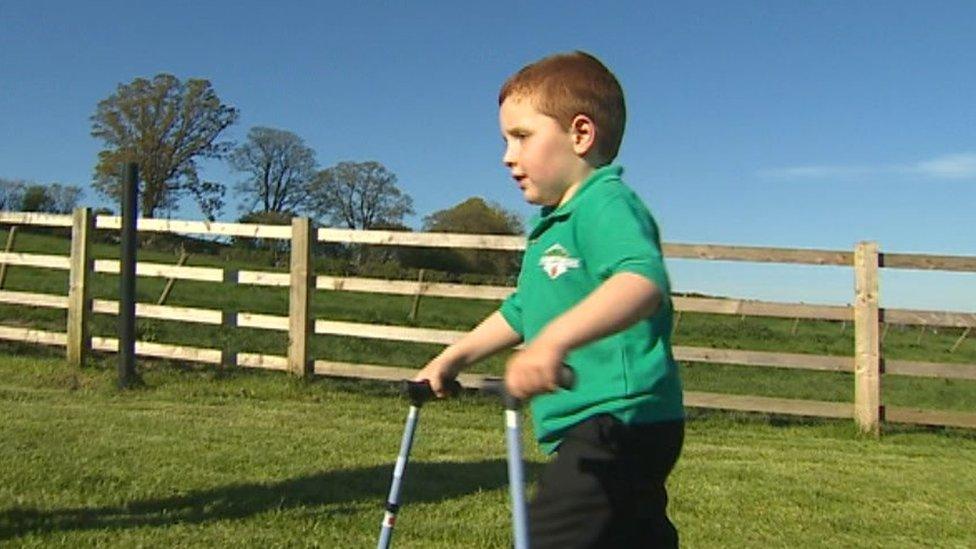
Ifan currently uses sticks to walk outside
The family of a boy with cerebral palsy who paid £55,000 for a specialist operation in the US want it made available on the NHS in Wales.
Ifan Thomas, four, from Denbighshire, had selective dorsal rhizotomy (SDR) to aid his spastic diplegia three months ago and improve his mobility.
His parents say it is wrong a lack of money prevents other children from being treated, if appropriate.
The Welsh Government said it was monitoring the evaluation of a trial.
Ifan's cerebral palsy caused him to walk up on his toes, meaning it was impossible to walk independently.
SDR, which involves operating on nerves in the spinal column, has helped reduce his muscle stiffness and he now has a better walking pattern.
Although SDR is performed in some English hospitals, Ifan's parents Cathryn and Geraint Thomas, from Pwllglas near Ruthin, took him to St Louis Children's Hospital in Missouri because the surgeon, Dr TS Park, is a specialist and "pioneer" who had performed more than 3,000 of the operations.
As well as SDR, Ifan also had a muscle-lengthening operation on his legs.
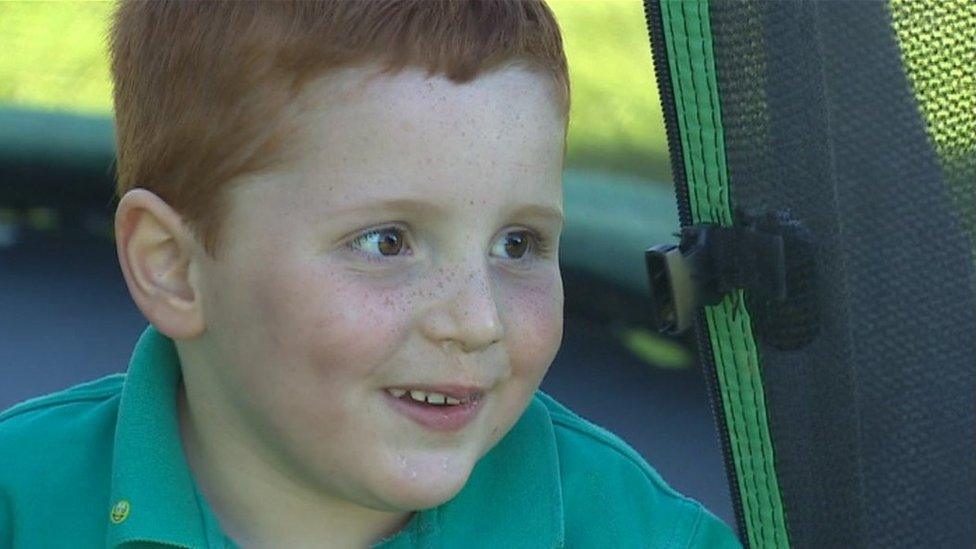
Mr Thomas said of his son's condition: "He needs a walking aid. He's on walking sticks at the moment and we're hoping with time we'll be able to take him off them and then he'll be an independent walker.
"The difference in him [since surgery] is amazing. The freedom in his legs, the way that he moves, everything has totally changed."
Mrs Thomas added: "The quality of his walking is amazing to see. He's basically learnt to walk again because he's doing it now in a 'normal' pattern."
She said, in her experience, doctors in the UK were "much more reserved" with treatment options.
"We've asked about several different treatment options that we've read about and heard about and they were very dismissive about the surgeries really," she told BBC Wales' Newyddion 9 programme.
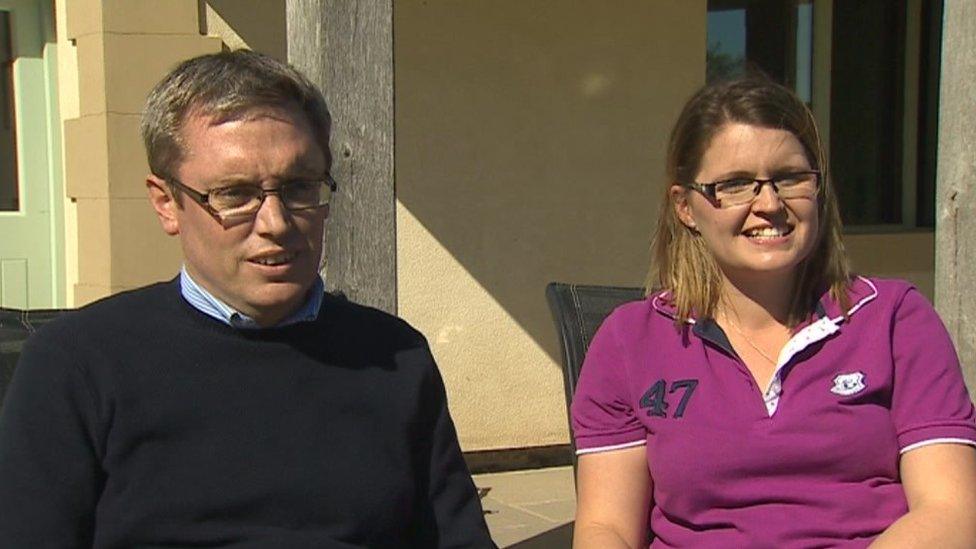
"They do do SDR and other treatments in the this country but I think it's a bit more of a battle to get the right doctor and get the referrals in to go that route."
The Welsh Government took part in an NHS England process called Commissioning through Evaluation to allow assessment of the effectiveness of SDR to decide on future use of the surgery.
It gave £200,000 in 2015-16 to the Welsh Specialised Services Committee to enable 14 Welsh patients to receive SDR in England.
A spokesman said: "We are monitoring progress to date with WHSSC and we are awaiting an evaluation of the programme, which is due to be completed by NHS England by Autumn 2018."
Dr Sue Hurrell, who set up the charity Support 4 SDR Wales after her daughter had the treatment, said the surgery was not suitable for everyone.
"A lot of people have complex cerebral palsy with different types of movement problems and it will only address the spasticity," she said.
"It doesn't fix the brain damage and you remain having some difficulties with movement and with strength quite often.
"We know how beneficial this [surgery] can be for certain children. We're confident that the results will show that and this will be commissioned in the future."
- Published1 November 2012
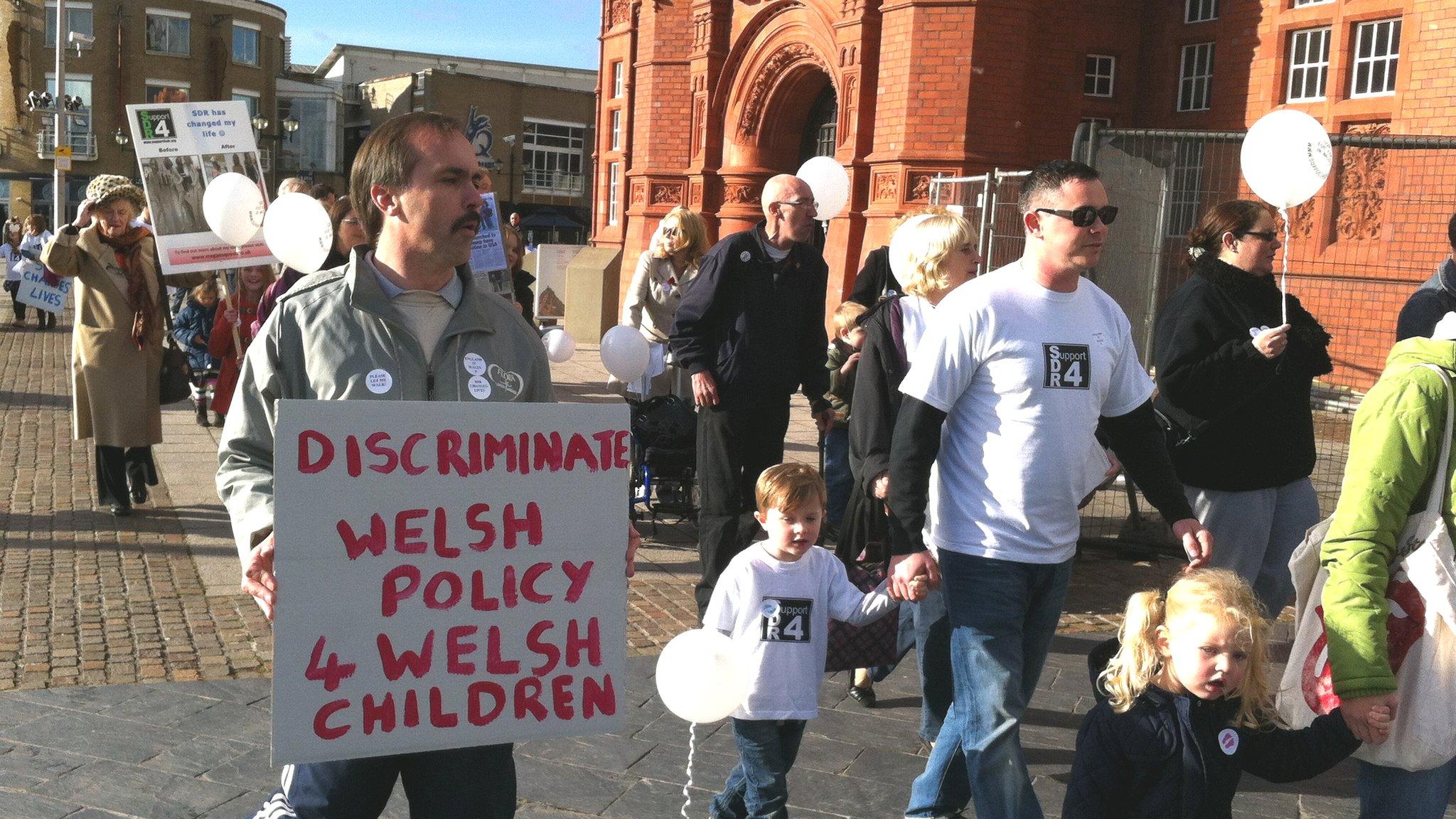
- Published28 April 2017
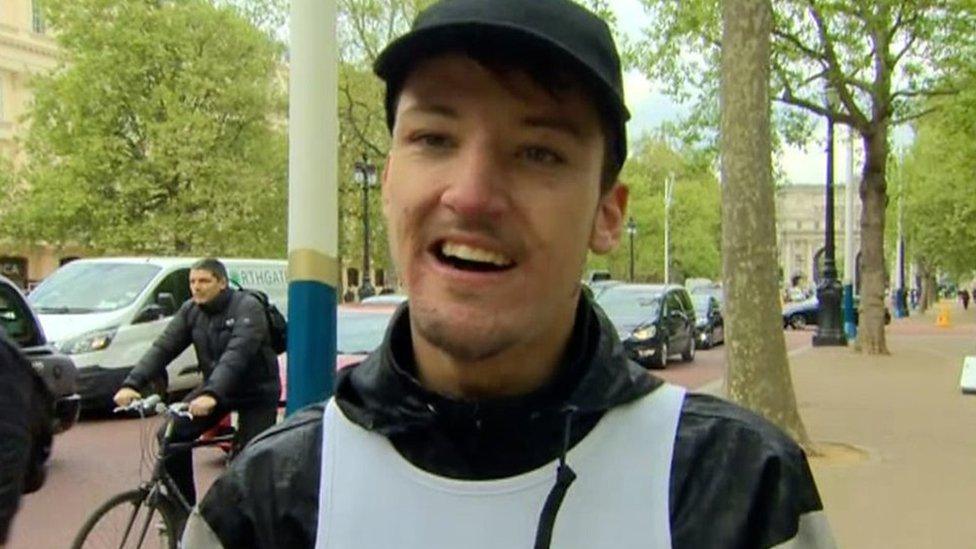
- Published14 February 2017
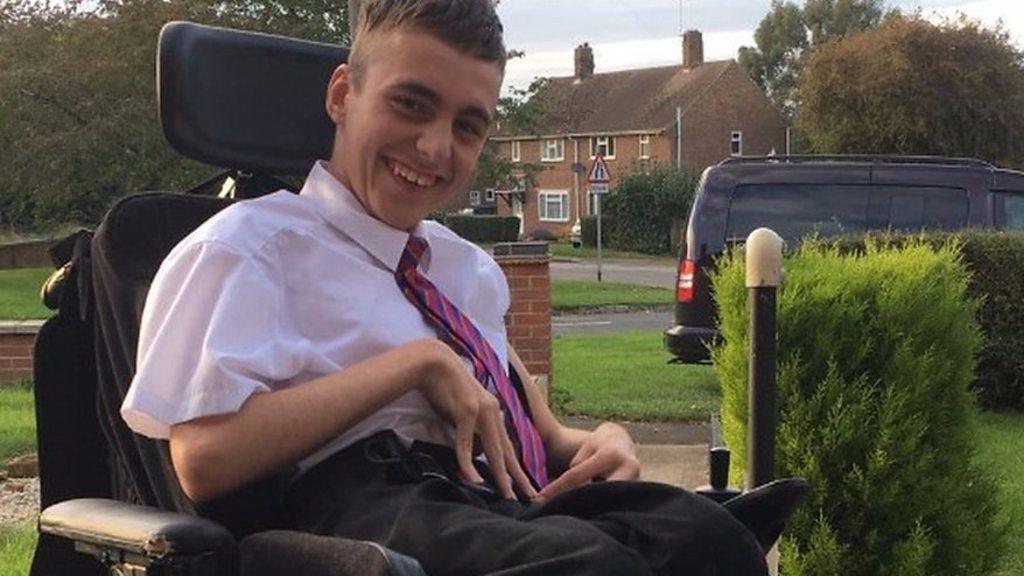
- Published2 May 2017
